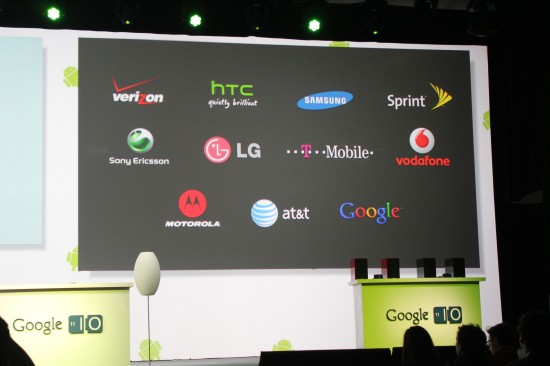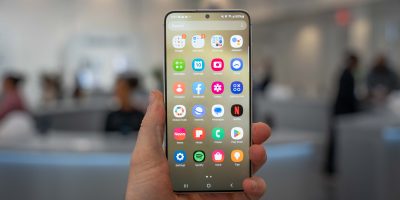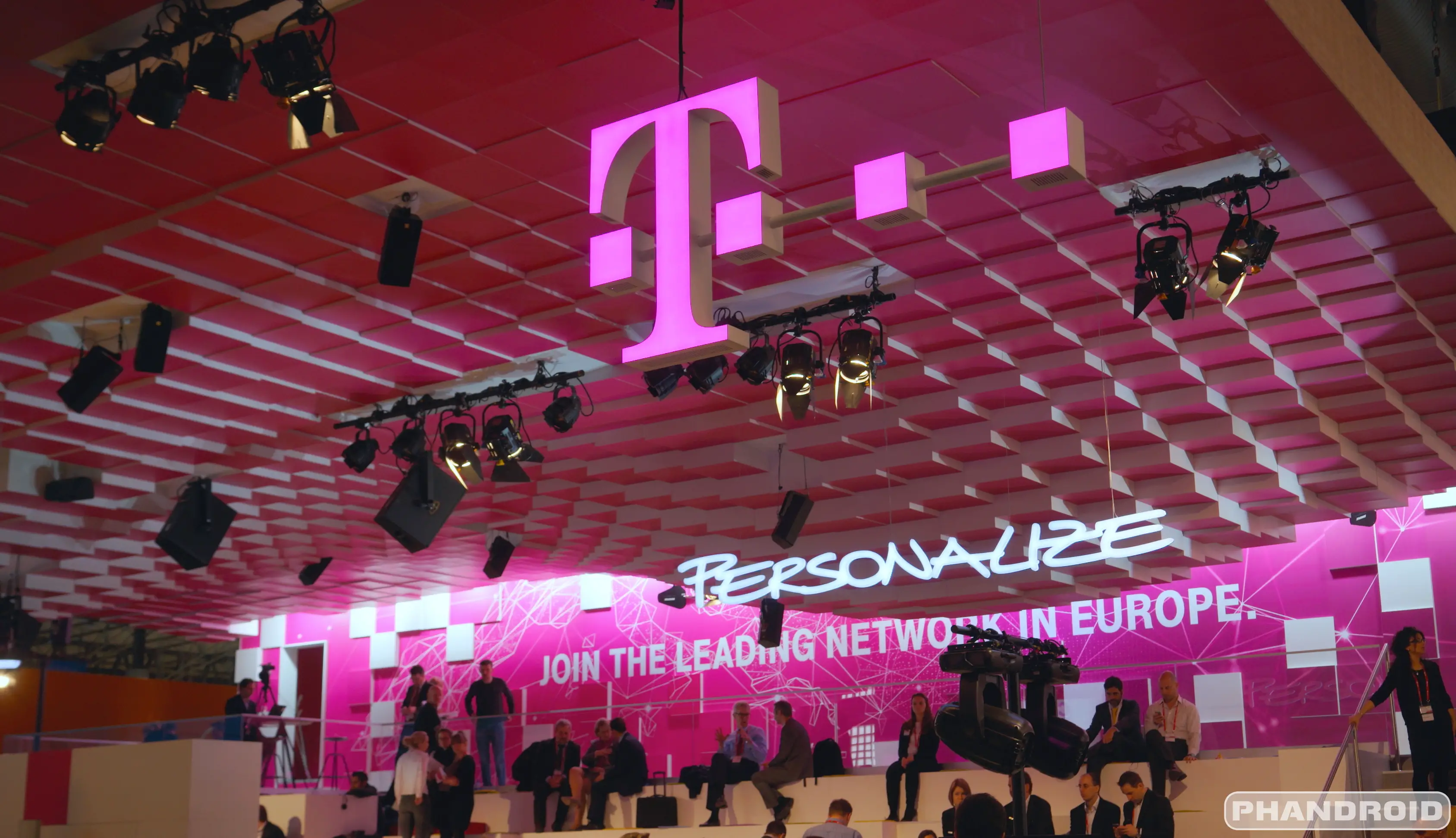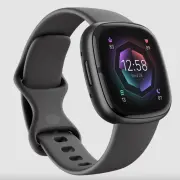One thing that might make a few of you happy is Google’s pledge to provide the latest versions of Android for up to 18 months after a device is purchased. It’s a much needed movement as today’s “fragmentation” issue still rages on. Tons of devices have yet to get Gingerbread, including a number of stock Android devices. It was never Google’s, your OEMs’, or your carriers’ obligation to provide updates which allowed them to define their own upgrade schedule.

With this movement, OEMs and carriers will work day and night to get users the absolute latest version of Android. All of the big four carriers here in the United States are on board as well as today’s popular OEMs including HTC, Motorola, Samsung and more. They also mentioned that international carriers would look to do the same, but couldn’t offer any names outside of Vodafone (we expect Europe’s major carriers to follow along, though).
There is a caveat, of course – your device will still need to be powerful enough to get an update. Even with the 18 month promise, some phones may be technologically unable to receive updates. Your best bet is to just go the high-end route once Google launches this program. 18 months is a very sensible and fair stretch of time. On some carriers, you can get a fully-subsidized upgrade before your original contract is up (usually ranging from 2-4 months before your contract is set to expire).
I’m excited to see how this’ll turn out. Will Google and their manufacturers stay true to their word or are they just blowing smoke to keep critics at bay? Regardless, we’re glad they addressed the issue and are working to rid the Android world of fragmentation. (Although the problem of fragmentation will never fully die. Just learn to accept that fact, folks.)









Woot!
This is more like it!
not of use to me…Im going nexus
Went Nexus 17 months ago and never looked back.
Yah, right! Google can not even get proper 2.3.4 on Nexus S! T-Mobile versions (2.3.3 and 2.3.4) have problems and Google is not even bothering to fix them. Two major issues (just Google or look for their support forum)
1. Yellowish screen color (makes screen look ugly)
2. Wi-Fi connectivity (this has been a problem for several Android phones)
Google, fix these issues on Nexus S first before you promise anything
.
I realize that I’m only one data point to compare to, but I’m also using a nexus s on 2.3.4 (which I updated manually the same day google released it,) my wifi remains on all day and is used for controlling pc’s, updating docs, streaming content, etc. Have yet to see a single problem, so I wonder how/why there could be a difference between my t-mob nexus s and someone else’s since they are identical hardware and software. Not calling you a liar! Just curious if this is really the case nexus to nexus somehow, or if I’m not using the phone in such a way as to cause the wifi issue you mention.
I personally liked the screen color adjustment, but that’s subjective.. This phone is the best experience I’ve ever had with technology. I find myself getting mad these days when I go to do something on my desktop machine and remember that Windows 7 can’t be voice-controlled gracefully like this phone can (despite many many hours invested in the attempt, it cannot compare with cloud analysis.) So my net-interaction has changed so that I actually prefer the nexus experience despite missing desktop perks like a spacious 3-monitor screen setup and such. Never thought that could happen but there it is, its just that good. No question I will upgrade to another nexus in the future.
could be particular wireless routers having issues.
Excellent idea, Google and the manufacturers are finally getting it!
One update every 17 months. Now the carriers have more time to stretch it out and use this as an excuse.
Technically they’d be keeping their word I suppose. In the most loopholed way possible.
WHAT??? this is 18 months of support for a phone after its release not an 18 month time line for an update.
Fragmentation may never die but this will likely make a BIG issues a lot smaller
Agreed.
Empty promises change nothing. Google needs to learn to leverage its new muscle and take over the update process.
This should equate to two updates per phone considering the Android version timeline (usually a new iteration every 6 months), but as CoronaDoug points out, what’s to stop carriers/OEMs from claiming it takes 18 months to put their crap UI over the latest version of Android.
Great news!
I am under the impression, that most of the manufacturers simply don’t have a big enough software department.
SonyEricsson, Motorola, LG, Samsung – they made handsets with a proprietary-mickeymouse-OS before Android came along (ok, they sold a couple of phones with Nokias Symbian OS).
For their completely closed wannabe-OSes they hardly needed any developers.
Android offers an open system with zillions of cross dependancies between apps.
This is obviously much more work than before.
HTC seems to have invested in a decent programming team, as their Sense stock ROMs seem to run much smoother than many other manufacturers interpretations of Android.
I believe that most manufacturers will realize, that they need to invest into a decent software developer department to ensure quality on par with the few model students of the business.
This movement seems to indicate they already have learned.
Sold a couple of phones with Symbian? You do realize they have a decent share of the market still right?
@
Elvis the Queen
acer liquid is kind of fun too…..
Fantastic news
I think this is one of those promises that will fall to the wayside after about 6 months. Considering the track records of several manufacturers and carriers I’m sure the “up to 18 months” will often equate to maybe one major upgrade within 18 months of initial release.
best news i’ve heard all day i think
They should have agreed on 24 months, the normal contract length. Atleast for you guys over states side.. they make us Canadians sign 3 years for any sort of real price cut.
But this is a great start. Will cut down on gragmentation and keep people no more then 6 months behind.
But then you wouldn’t have much incentive to get the phone right as your contract expires if you receive the latest update just 1 month before that happens.
Fair enough I spose.
Sounds like your are saying. through multiple comments, that a device that cost more than an average laptop shouldn’t be supported for as long as that average laptop is.
Smartphone hardware is at the point where a device can last several years just like any decent middle level laptop and the phones usually cost more, they should receive at least similar support. . . guess this is making Android look more and more like OEMs’ wet dream to constant hardware upgrade => go with Apple, RIM, or MS for long term support?!?!?!
It’s a weak announcement. People are just happy because support has been total crap up to this point. 18 months isn’t “good” support at all and we shouldn’t celebrate it.
Plus don’t most carriers allow for an early upgrade after 18 months?
Great news, but as others have said, they really need to have a target timeline between google releasing an android update and carriers pushing it out in order for this thing to have any effect. Otherwise they can be “working on it” for a year.
Good luck with that Google
Google is doing it already.. It’s the manufacturers and carriers who are not up to speed. . and for the most part they are doing it as well.. Now nowhere in this pledge does it give any timeframes for updates.. So in reality.. nothings changed except a pledge to do what they are doing for the most part anyway. I think you can count on 1 hand the number of Android phones who have gotten zero updates.
And of course, Google really isn’t clear on how they are going to do this. Just an announcement to get you Android fans excited, and then bank on some new beta product for Android they launch in 6 months that will help you forget what they said earlier.
http://www.engadget.com/2011/05/10/google-clarifies-18-month-android-upgrade-program-details-far-f/
Does it apply to fascinate?
I thought the guideline was supposed to be 18 months from RELEASE. Purchase makes no sense because some companies might sell 2 year old phones, that we know has reached EOL
DO NOT DOUBT WHAT YOU READ ON THE INTERNET
Personally I feel if they sell it they should support it. So if they keep selling Evos 1 year later I should keep getting updates and that “18 month eol” should extend acordingly.
There’s no way that’s going to happen mind you. Instead we are getting smoke blown up our rears with a meaningless “pledge”.
If google doesn’t learn what cutomer support is they will start to feel the backlash soon
So. . . does that mean that they also will stop updates & upgrades after 18 months?
Are you kidding? You can barely get *one* update now and it’s only for the most popular models usually. This would be a huge improvement. It means you can get at least 3 major updates for all phones made by HTC, Samsung, Motorola, LG and SE.
When I bought an HTC Eris from Verizon back in Nov 09 the first day they were available the udpate was supposed to occur the following month. It didn’t until late spring 2010. I suspect the carriers are very cautious about the firmware updates going smoothly that that adds a lot of delay to delivery. Sounds to me like the OEMs and Google need to make sure the devices and the updates are much easier and foolproof to install. The telecoms are always going to be worried about support expense if an update gets botched.
So did motorola get this news? Because right now there are some xoom wifi owners who beg to differ…
Hey, at least you were promised an update… All the galaxy tab users got shat on the moment they bought the device. I wont ever buy a samsung because of that.
This does absolutely nothing. This means…
Google will give you your update to the most recent within 18-months total. So…in theory the same thing will happen. What they need to do is “update within 120-days of releasing the update”.
That also means Google way slow down (good and bad), which means things may take 18-months or longer to be resolved. There is a crap load of small print missing!
A lot of people seem to be misunderstanding this. Users wont just get one update per 18 months. Users will get ALL android updates in that 18 month window. The manufacturers can’t say “Oh, its gonna take 18 months to get this update out to our phones” because they are OBLIGATED by their partnership agreement, along with the carriers to support a device for 18 months of its release.
Hmmm… I notice that Viewsonic is not on that board… SO much for my G Tablet. :(
This is great news for everyone.
Stop adding bloatware and custom UI’s on top of Android, or at least stop integrating them into the OS, and that would help both the time between updates and the need for additional OEM and carrier programmers!
Now give me GINGERBREAD on my VIBRANT please !!! :)
Great news!! Now lets get GB on my incredible please!!
google is a reliable brand i trust they will follow thru
too little too late IMO.
To do this right Google needed to take overall updates just as MS updates all computers except for drivers. Asking a hardware vendor to keep track ofo software updates is a complete waste of time and money to the vendor and they will only do _just_ enough to keep lawsuits from happeneing … it’s just not profitable.
The kernel contains the drivers … there was no reason Google couldn’t have standardized the driver API (read: MS:HAL) and ust had phone vendors release kernels and google update directly.
I’m almost certain the only reason they didn’t is that Verizon/ATT would have lost the ability to control what”free” things would make it onto the phone.
As long as everything goes to AOSP first, who cares what the telcos are doing?
Telcos control the release atm… so we HAVE to care